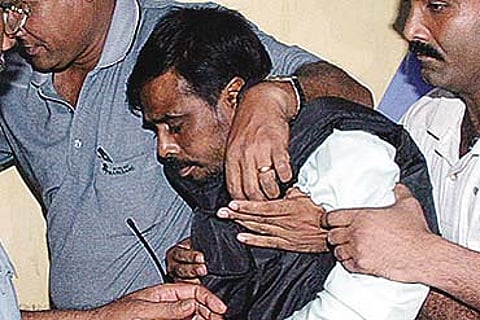Growth Of A Cancer
Is it HUJI... or is it not?
- Feb 19, 1996: 41 HUJI activists arrested for carrying arms
- Jan 18, 1998: Tried to kill Bangladesh poet Shamsur Rahman
- July 2000: Assassination bid on former PM Sheikh Hasina
- May 2005: US names HUJI a terrorist outfit
- Oct 2005: Bangladesh bans HUJI
***

The Zia government's patronage of militants was made public following the arrest of HUJI operations commander Mufti Abdul Hannan on October 1, 2005. Hannan claimed he didn't flee the country following the 2000 assassination attempt on Hasina because he had been assured protection by the home minister in the Zia government, Altaf Hossain Choudhury. Hannan further disclosed that he had "slipped" into India to study at the famous Deoband seminary in Uttar Pradesh for five years, before he trained in Peshawar, Pakistan, to fight in Afghanistan.
The ban on HUJI prompted its top leaders to go underground or disappear from Bangladesh, with some even taking refuge in West Asia. Police also say that many HUJI activists have either joined existing Islamic organisations or floated new outfits that haven't been proscribed yet. In October 2006, a year after the ban, several HUJI leaders gathered at the Baitul Mukarram mosque in Dhaka, under the banner of Sachetan Islami Janata (Conscious Islamic People). This meeting reportedly had the approval of the government. Kazi Azizul Haque, who had organised the HUJI rally, told The Daily Star, "We have been trying for a long time to convince the government that nobody of HUJI, other than Mufti Hannan and Abdur Rouf, is involved in any terrorist activity. " Other leaders told the newspaper that Hannan and his extremist followers were expelled from HUJI in 1998.
HUJI's violent past apart, several Bangladeshi officials express surprise at the Indian government's propensity to blame the group for terror acts even before these are investigated. It happened in Varanasi, it has again happened in Hyderabad.
Tags